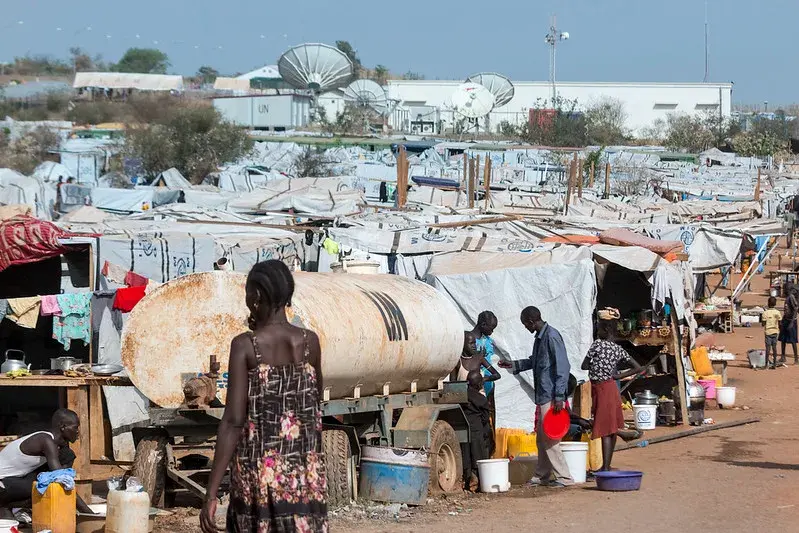With millions displaced and the world’s worst hunger crisis taking hold, the United Nations warns that bureaucratic obstacles and active hostilities are blocking lifesaving assistance.

The United Nations issued a warning on Tuesday, stating that the war in Sudan between the national army and the paramilitary Rapid Support Forces has created the world’s largest internal displacement crisis and is pushing the country toward a full-scale famine, with bureaucratic impediments and relentless fighting systematically strangling the delivery of humanitarian aid.
In a detailed report from its Office for the Coordination of Humanitarian Affairs (OCHA), the world body outlined a catastrophic situation that has escalated dramatically since the conflict began fourteen months ago. The number of people forcibly displaced within Sudan has now surpassed 9 million, a figure that underscores the vast scale of human suffering and surpasses even that of Ukraine. When combined with the more than 2 million refugees who have fled to neighboring countries, the total displacement amounts to over a third of Sudan’s pre-war population.
“The war in Sudan is a crisis of epic proportions, and it is happening away from the world’s gaze,” said Edem Wosornu, OCHA’s director of operations, in a closed-door briefing to the U.N. Security Council, details of which were later made public. “What we are witnessing is a systematic destruction of a nation. The parties to the conflict are failing to protect civilians, and they are failing to facilitate the aid that millions depend on for their very survival.”
The U.N. report meticulously documents the immense hurdles facing aid organizations. Cross-border deliveries from Chad into the ravaged western region of Darfur, while providing a critical lifeline, are insufficient to meet the soaring needs. The primary route for aid, however, remains across conflict front lines from the eastern hub of Port Sudan, a journey that requires passing through numerous checkpoints controlled by either the Sudanese Armed Forces or the Rapid Support Forces. At each point, convoys face lengthy delays, demands for fees, and outright denials of access.
This bureaucratic blockade is compounded by a near-total collapse of the country’s banking and financial systems, making the transfer of funds for aid operations nearly impossible. Furthermore, the theft of humanitarian supplies and widespread looting of the commercial trucks and fuel needed for distribution have become rampant, further crippling the response.
The consequences of this blocked aid are most acutely felt in the escalating hunger crisis. The Integrated Food Security Phase Classification (IPC), the global authority on famine, has reported that nearly 5 million people are now facing emergency levels of hunger, one step below famine on the scale. Another 18 million people are facing acute food insecurity. The U.N. has officially declared a famine in several parts of the country, the highest level of alarm, indicating that starvation, death, and destitution are already present.
“Children are dying from malnutrition and preventable diseases,” the report states. “Medical facilities have been bombed, occupied, or looted, and the few that remain operational face severe shortages of supplies, electricity, and clean water.”
Despite a Security Council resolution earlier this year demanding an end to the siege of El Fasher, the capital of North Darfur, the fighting has only intensified around the city, creating a humanitarian trap for hundreds of thousands of civilians. Aid officials describe a scenario where the international community’s efforts are being systematically neutralized by the very parties engaged in the conflict, leaving a desperate population to fend for itself.
Keep Independent Journalism Alive
In a world flooded with noise, independent journalism is more vital than ever. We work hard to bring you clear, accurate, and unbiased international news — free from corporate or political influence.If you believe in the power of honest reporting, please consider making a donation. Every contribution, big or small, helps us stay independent and keep the world informed.
Support us via PayPalYour support makes a difference.

